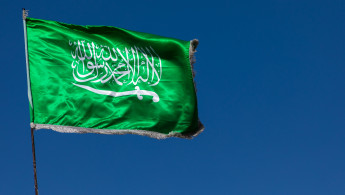Saudi dives into Ukraine peace push with Jeddah talks
Saudi Arabia hosted talks on the Ukraine war Saturday in the latest flexing of its diplomatic muscle, a session that Kyiv had predicted would "not be easy" given the wide range of countries represented.
The meeting, which Ukrainian organisers said would include representatives from nearly 40 countries but not Russia, concluded on Saturday evening after several hours of statements from the various delegations and a lengthy closed discussion, participants said.
As expected, no final declaration was due to be released, though a European source said there had been agreement on key points, including that respect for Ukraine's "territorial integrity and sovereignty" should be "at the heart of any peace settlement".
Organisers succeeded in bringing together representatives of the four members of the influential BRICS bloc besides Russia: Brazil, India, China and South Africa.
"China participated actively and was positive" about meeting again, the European source said.
Yet the head of Brazil's delegation, foreign policy adviser Celso Amorim, used his prepared remarks to stress that "any real negotiation must include all parties," including Russia, according to a copy of his statement shared with AFP.
"Although Ukraine is the biggest victim, if we really want peace, we have to involve Moscow in this process in some form."
Russia invaded Ukraine on February 24, 2022, failing in its attempt to take the capital but seizing swathes of eastern territory that Western-backed Ukrainian troops are fighting to recapture.
Ukraine had gone into Saturday's meeting expecting tension.
"I predict that the conversation will not be easy, but the truth is on our side," the head of Ukraine's presidential office, Andriy Yermak, said in an interview broadcast on Friday.
"We have many disagreements and we have heard many positions, but it is important that we share our principles," said Yermak, who headed Kyiv's delegation to the talks.
"Our task is to unite the whole world around Ukraine."
The Jeddah meeting followed talks in Copenhagen in June that were designed to be informal and also did not yield a final declaration.
Diplomats said the Ukraine-organised meetings were intended to engage a range of countries in debates about a path towards peace -- notably members of the BRICS bloc with Russia that have adopted a more neutral stance on the war in contrast to Western powers.
US National Security Adviser Jake Sullivan headed Washington's delegation, a senior White House official said.
Speaking on Friday, Ukrainian President Volodymyr Zelensky welcomed the participation of developing countries hit hard by the surge in food prices triggered by the war.
His office said this week that the meeting would focus on his 10-point peace formula that calls for the full withdrawal of Russian troops from Ukrainian territory.
It also calls for the restoration of Ukraine's borders -- including the territory of Crimea, unilaterally annexed by Russia in 2014.
Russia has in the past said any negotiations would need to take into account "new territorial realities".
The meeting highlights Saudi Arabia's "readiness to exert its good offices to contribute to reaching a solution that will result in permanent peace", the official Saudi Press Agency said Friday.
The world's biggest crude exporter, which works closely with Moscow on oil policy, Riyadh has touted its ties to both sides and positioned itself as a possible mediator in the war.
In May, the kingdom hosted Zelensky at an Arab summit also in Jeddah, where he accused some leaders of turning "a blind eye" to the horrors of Russia's invasion.
Riyadh has adopted a "classic balancing strategy" that could soften Russia's response to this weekend's summit, said Umar Karim, an expert on Saudi politics at the University of Birmingham.
Saudi officials see Saturday's talks as evidence of its global clout and vindication of its emphasis on diversifying diplomatic partners.
"These talks are a prime example of the success of Saudi Arabia's multipolar strategy of maintaining strong ties to Ukraine, Russia and China," said Ali Shihabi, a Saudi analyst close to the government.
Moving forward Riyadh "wants to be in the company of an India or a Brazil, because only as a club can these middle powers hope to have impact on the world stage," said Joost Hiltermann, Middle East programme director for the International Crisis Group.
"Whether they will be able to agree on all things, such as the Ukraine war, is a big question."





 Follow the Middle East's top stories in English at The New Arab on Google News
Follow the Middle East's top stories in English at The New Arab on Google News


